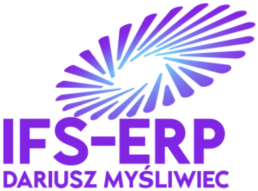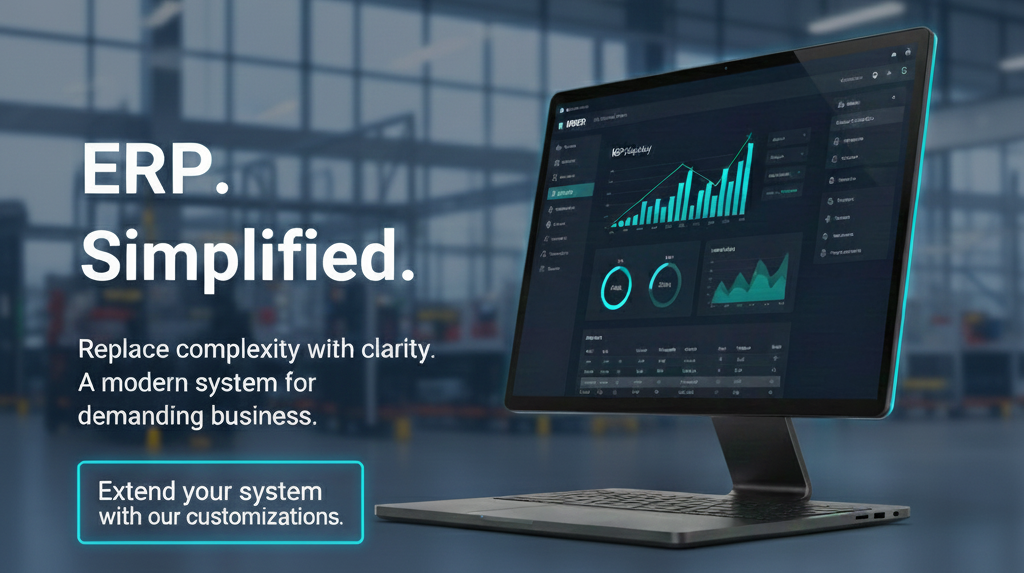Implementing data governance in IFS Cloud is essential for ensuring data accuracy, security, and compliance. Without a structured approach, organizations risk making decisions based on incorrect or outdated information, exposing sensitive data to breaches, and failing to realize the full potential of their ERP investment. This guide outlines the four phases of implementing data governance in IFS Cloud, along with best practices for 2025.
Why Data Governance Matters in IFS Cloud
Data governance is the foundation of a successful IFS Cloud implementation. It ensures that your data is accurate, secure, and useful, enabling better decision-making, operational efficiency, and compliance with regulations. Poor data governance can lead to wasted time, lost opportunities, and operational inefficiencies. By embedding governance into your IFS Cloud project, you can turn these risks into opportunities and unlock the full potential of your ERP system.
The Four Phases of Implementing Data Governance in IFS Cloud
Phase 1: Assessment and Planning
This phase sets the stage for your data governance initiative. The goal is to identify critical data assets, assess risks, and define clear objectives.
- Identify your critical data assets. Identify the data that is most crucial to your business operations and decision-making processes.
- Assess current data quality and security risks. Evaluate the state of your data and identify potential vulnerabilities or areas for improvement.
- Define governance objectives and metrics. Establish what you want to achieve with your data governance initiative and how you will measure success.
- Secure executive sponsorship. Ensure that leadership is on board and committed to supporting the initiative.
During this phase, use IFS Cloud’s Data Discovery and Audit Manager tools to gain insights into your data landscape and identify areas that require attention.
Phase 2: Design and Configuration
In this phase, you will develop the policies and processes that will guide your data governance efforts.
- Develop data governance policies. Create clear, actionable policies that outline how data should be managed, secured, and used.
- Configure IFS Cloud security settings. Set up role-based access control (RBAC), field-level security, and encryption to protect sensitive data.
- Set up data validation rules. Implement rules to ensure that data entered into IFS Cloud is accurate and consistent.
- Design data quality monitoring processes. Establish processes for continuously monitoring data quality and addressing issues as they arise.
Use IFS Cloud’s Security Console and Data Quality Dashboard to configure and monitor your governance policies.
Phase 3: Implementation and Testing
This phase involves implementing your data governance policies and testing their effectiveness.
- Implement governance policies in IFS Cloud. Apply the policies and processes you developed in the previous phase.
- Test data quality and security thoroughly. Conduct rigorous testing to ensure that your governance policies are working as intended.
- Train users on new procedures. Provide training to ensure that all users understand their roles and responsibilities in maintaining data governance.
- Run pilot programs in selected departments. Begin with a small-scale implementation to identify and address any issues before rolling out governance policies organization-wide.
Leverage IFS Cloud’s Test Environment and Training Modules to facilitate this phase.
Phase 4: Go-Live and Continuous Improvement
The final phase focuses on maintaining and improving your data governance framework over time.
- Monitor data quality and security in production. Use IFS Cloud’s Operational Intelligence tools to track key metrics and identify potential issues.
- Address issues as they arise. Respond promptly to any data quality or security issues that emerge.
- Review and update governance policies regularly. Keep your policies up to date to reflect changes in regulations, evolving business needs, and advancements in technology.
- Continuously train and educate users. Provide ongoing training to ensure that users remain informed and engaged in data governance efforts.
Use IFS Cloud’s Learning Management and Operational Intelligence tools to support continuous improvement.
Best Practices for Data Governance in IFS Cloud
To make your data governance initiative even more effective, consider the following best practices for 2025:
1. Establish Clear Data Ownership
Assign specific individuals or teams to be responsible for data quality and security. Clear ownership ensures accountability and makes it easier to track issues back to their source. This is especially important during data migration and ongoing maintenance.
2. Implement Data Quality Standards
Define and enforce enterprise-wide naming conventions, data definitions, and validation rules to ensure consistency and accuracy across the organization. Standardizing data formats (such as dates, addresses, and item codes) prevents inconsistencies and makes integration smoother. Use IFS Cloud’s Data Quality Dashboard to monitor and maintain high data quality.
3. Foster a Culture of Accountability
Data governance is not just an IT concern, it’s a company-wide responsibility. Regular training and communication help embed governance into daily operations. Make sure everyone understands their role in maintaining data integrity and security.
4. Use a Structured Governance Framework
Establish a formal organizational structure for overseeing data. Define roles, responsibilities, and decision-making authority for all data-related activities. This prevents silos and ensures consistency across departments.
5. Leverage IFS Cloud’s Built-in Tools
IFS Cloud offers features such as role-based access control, audit trails, and data validation rules. Utilize these tools to automate compliance, monitor data quality in real-time, and establish alerts for critical issues. Continuous monitoring is crucial for identifying problems early.
6. Start Small, Then Scale
Begin with one critical data domain (such as financial or customer data) and expand as you see success. This approach makes the process manageable and demonstrates quick wins, which helps build support for broader governance initiatives.
7. Regularly Review and Update Policies
Data governance is not a one-time project. Regularly evaluate and update your policies to adapt to new regulations, business needs, and technological changes. This keeps your governance framework relevant and effective.
8. Integrate Governance into Data Migration
If you’re migrating data to IFS Cloud, establish governance rules and standards before the migration begins. Clean, validated, and well-structured data is the foundation for a successful ERP implementation.
Common Challenges and How to Overcome Them
Implementing data governance in IFS Cloud can be challenging, but these strategies can help you overcome common obstacles:
- Resistance to Change: Involve end-users early in the process. Show them how good data governance makes their jobs easier by reducing time spent fixing data errors and providing more reliable information for decision-making.
- Lack of Executive Support: Present data governance as a business enabler, not just an IT concern. Highlight the cost savings, risk reduction, and revenue opportunities that result from improved data quality and security.
- Overwhelming Scope: Start small and scale up. Begin with one critical data domain and expand as you demonstrate success.
Measuring Success
Track these key metrics to demonstrate the value of your data governance efforts:
- Data accuracy rates (target: 98% or higher)
- Time spent resolving data issues (target: 50% reduction)
- Number of security incidents (target: zero)
- User satisfaction with data quality (target: 90% or higher positive feedback)
- Compliance audit findings (target: zero major issues)
Use IFS Cloud’s reporting tools to create dashboards that show your progress over time.
Conclusion
Implementing data governance in IFS Cloud is a journey, not a one-time project. By following the four-phase roadmap and best practices outlined in this guide, you can build a robust data governance strategy that ensures data accuracy, security, and compliance. This will enable your organization to make better decisions, streamline operations, and unlock the full potential of your ERP investment.
Frequently Asked Questions
What is data governance in IFS Cloud?
Data governance in IFS Cloud refers to the processes, policies, and tools used to ensure that data is accurate, secure, and compliant with regulations. It involves defining roles, responsibilities, and standards for data management, as well as implementing tools to monitor and maintain data quality.
Why is data governance important for IFS Cloud implementations?
Data governance is crucial for IFS Cloud implementations because it ensures that data is reliable, secure, and useful. Without proper governance, organizations risk making decisions based on incorrect data, exposing sensitive information to breaches, and failing to comply with regulations.
What are the four phases of implementing data governance in IFS Cloud?
The four phases are: 1) Assessment and Planning, 2) Design and Configuration, 3) Implementation and Testing, and 4) Go-Live and Continuous Improvement. Each phase builds on the previous one to create a sustainable data governance framework.
How can I ensure data quality in IFS Cloud?
To ensure data quality in IFS Cloud, establish clear data standards, implement validation rules, and use the Data Quality Dashboard to monitor key metrics. Regularly review and cleanse data to maintain accuracy and consistency.
What tools does IFS Cloud provide for data governance?
IFS Cloud offers several tools for data governance, including the Data Quality Dashboard, Security Console, Audit Manager, and Operational Intelligence. These tools help you monitor data quality, configure security settings, and track compliance.
How do I get executive support for data governance initiatives?
To gain executive support, present data governance as a business enabler. Highlight the cost savings from improved data quality, the risk reduction from better security and compliance, and the revenue opportunities from more reliable analytics.
What are the best practices for data governance in 2025?
Best practices for 2025 include establishing clear data ownership, implementing data quality standards, fostering a culture of accountability, using a structured governance framework, leveraging IFS Cloud’s built-in tools, starting small and scaling up, and regularly reviewing and updating policies.


